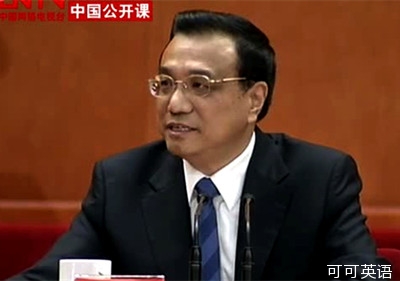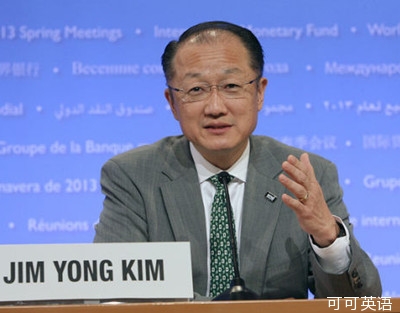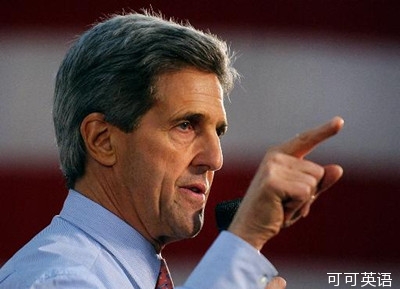A mixed score card
好坏参半的成绩单
The efforts in governance reform since the crisis can be broadly split into three categories—coordinating macroeconomic policies, fixing global financial regulation, and strengthening regional and global safety nets.
危机以来的治理改革工作大致可分为三类:协调宏观经济政策、修复全球金融监管和加强区域和全球安全网。
First, macroeconomic policy coordination. Although not perfect, such coordination was particularly strong at the initial stage of the crisis. For instance, six major central banks announced, in an unprecedented move, a coordinated cut in policy rates in October 2008 to ease global economic conditions. The U.S Federal Reserve and 14 different monetary authorities established temporary U.S. currency swap arrangements to mitigate dollar shortages in short-term funding markets. And the first ever G20 Leaders’ Summit was convened in November 2008 and led to a commitment to coordinated fiscal stimulus and a pledge to refrain from protectionism.
首先,宏观经济政策协调。虽然不尽完善,但这种协调在危机初始阶段特别有力。例如,六大央行以前所未有的方式宣布将在2008年协调降息,以纾缓全球经济。美国联邦储备委员会和14个货币当局设立了临时美元货币互换安排,以缓解短期融资市场上的美元短缺。2008年11月,20国集团领导人召开首次峰会,承诺协调实施财政刺激,杜绝保护主义。
These massive efforts meant that, instead of another Great Depression, we got the Great Recession, which actually is a significant achievement, given the possible counterfactuals. However, more recently, the momentum for policy coordination has slowed, as the focus has shifted from preventing a calamity to avoiding future crises and supporting the nascent recovery. Some have argued that while the G20 was good in war, it might not be able to deliver as much in peace time.
这些大规模努力的结果是,没有再次发生大萧条,而是出现大衰退,这实际上是一个巨大成就,因为实际结果可能会更糟糕。然而,最近,政策协调的势头有所减缓,因为重点已经从预防灾难转变为避免未来发生危机和支持复苏。有人认为,20国集团可以在战争时期较好合作,但在和平时期则不尽然。
And the task is far from over.
任务还远未结束。
One challenge faced by the international community going forward will be to continue the dialogue on unwinding unconventional monetary policies and managing potential spillover effects as well as managing our way out of the debt burdens accumulated during the crisis.
国际社会未来面临的一大挑战是继续就退出非常规货币政策、管理潜在的溢出效应和处理危机期间累积的债务负担进行对话。
Second, global financial regulation. To address the origins of the crisis, G20 members committed to a fundamental overhaul of global financial regulation, with the intention of promoting a more transparent, safe, and resilient global financial system.
第二,全球金融监管。为了解决危机的根源,20国集团成员国承诺彻底改革全球金融监管,让全球金融体系更透明、更安全和更具抵御能力。
Most notably, the Financial Stability Board (FSB) was created in 2009 with a mandate to develop and promote effective financial regulation. Significant progress has been made in terms of strengthening system-wide oversight, increasing capital and liquidity buffers, promoting the exchange of financial information, and implementing macroprudential policy frameworks. Efforts are also underway to facilitate cross-border resolution.
最值得注意的是,2009年创立了金融稳定委员会,其任务是制定和推广有效的金融监管。在加强全系统监督、增加资本和流动性缓冲、促进金融信息交流、实施宏观审慎政策框架方面取得了显著进展。还在努力推动跨境破产解决工作。
Yet major challenges remain, such as ending the too-big-to-fail problem, reforming shadow banking, and making derivatives markets safer. In the euro area, recent policy actions have helped ease market stress, but more still needs to be done to reverse financial fragmentation and move towards a full banking union.
然而,仍存在重大挑战,如解决太大不能倒闭的问题、改革影子银行,并让衍生产品市场更加安全。在欧元区,最近的政策行动帮助缓解了市场压力,但还需去除金融分割,实现全面的银行联盟。
Third, strengthening regional and global safety nets. To mitigate the impact of the crisis, countries came together to strengthen the global financial safety net, including by trebling the size of the IMF’s resources and increasing the allocation of SDRs. In Europe, the financial architecture of the euro area was enhanced through the creation of the European Stability Mechanism (ESM) and the ECB’s Outright Monetary Transactions (OMT) framework. In other parts of the world, commitments to regional financing arrangements, such as the Chang Mai Initiative and the Eurasian Economic Community Anti-crisis Fund, were reinforced.
第三,加强区域和全球安全网。为减轻危机的影响,各国联合加强全球金融安全网,包括让基金组织的资源规模增加两倍和提高特别提款权分配。在欧洲,通过建立欧洲稳定机制和欧洲央行的直接货币交易框架,欧元区的金融架构加强。在世界其他地区,对区域性融资安排,如“清迈倡议”和“欧亚经济共同体反危机基金”的承诺都得到增强。
However, progress has been uneven in other areas. For example, in the case of the IMF, the agreement reached in 2010 on important quota and governance reforms that would further increase the voice and representation of emerging market and developing economies has not yet been implemented. While two of three required conditions have been fulfilled, further support is needed to meet the final condition that will allow the reform to take effect.
然而,其他领域的进展不均平衡。例如,就基金组织而言,2010年就重要的份额和治理改革达成的协议尚未实施,这些改革将进一步提高新兴市场和发展中经济体的发言权和代表性。虽然三个必要条件中的两项已得到满足,要使改革生效,还需得到进一步支持,以满足最后一个条件。
If we put all this together, the report card on global governance reform since the crisis is somewhat mixed. Policymakers across the globe need to keep the momentum alive and seize the opportunity to advance governance reform while memories of the crisis and the sense of urgency remain fresh. Indeed, there is a real danger that the window of opportunity for addressing some of the most challenging global issues might soon be closing. How can this trend be reversed and important reforms finalized? To answer this question, it is helpful to look at the different types of solutions that have evolved as means to deliver global public goods.
如果我们把这一切综合在一起,危机之后的全球治理改革成绩单好坏参半。世界各地的政策制定者需要保持势头,抓住机遇,趁对危机尚记忆犹新和改革迫切感尚存,推进治理改革。事实上,解决最具挑战性的全球性问题的窗口可能很快就会消失,这种危险是存在的。如何扭转此趋势并落实重要改革?要回答这个问题,让我们看看已经演变成提供全球公共产品手段的各种不同解决方案,也许会有所助益。
Soft versus hard policy coordination
软和硬政策协调
In what direction is the global system of economic governance and policy coordination evolving? To answer this question, I find it instructive to differentiate between “hard” and “soft” governance and policy coordination.
经济治理和政策协调的全球体系在朝哪个方向发展?要回答这个问题,我觉得区分 “硬”和“软”的治理及政策协调会有帮助。
“Hard” policy coordination is typified by quid pro quos in policies with a focus on specific and tangible outcomes. Examples include the two initial G20 Leaders’ Summits that took place in the immediate aftermath of the crisis, and resulted in the coordinated fiscal policy response I mentioned earlier and the creation of the FSB.
典型的“硬”政策协调是通过采取政策,以获得具体和切实的成果。例子包括20国集团领导人在危机之后立即召开的两次峰会,成果是前面所提到的协调的财政政策和创建FSB。
In contrast, “softer” forms of coordination are more process-based without a priori expectation of substantial outcomes or agreements. They are designed to facilitate the exchange of views and information sharing on an ongoing basis, such as the regular discussions among central bankers at the Bank for International Settlements (BIS).
相反,“软”协调更加注重于程序,对实质结果或协议没有先验期望。目的是持续基础进意见和信息共享,如央行在国际清算定期举行讨论。
Soft and hard policy coordination can complement each other. For instance, soft arrangements can keep the policy dialogue alive during quiet times, and provide a framework for harder cooperation, and even full-fledged policy coordination, during crises.
软的和硬的政策协调可以互为补充。例如,软安排可以在和平时期保持政策对话,并为硬合作提供合作框架,甚至是在危机期间提供全面的政策协调。


















